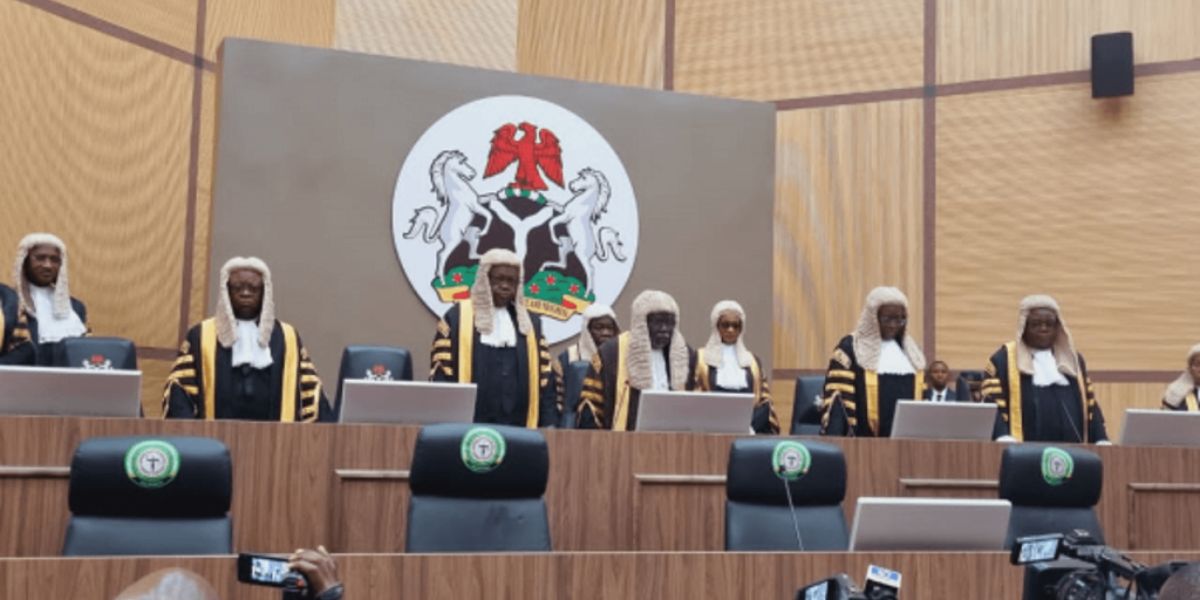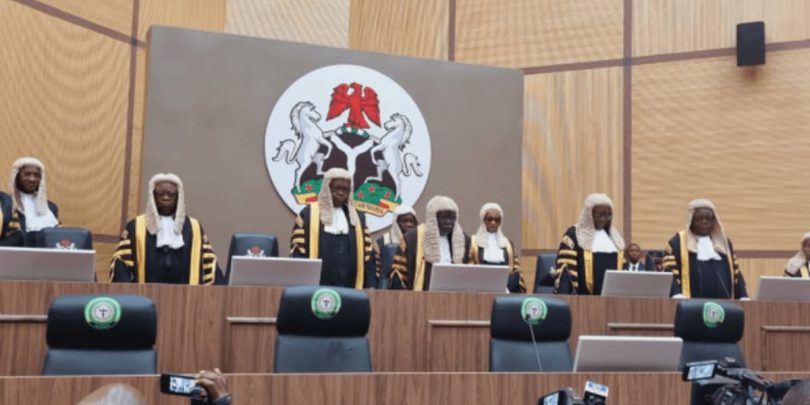
The Indigenous People of Biafra (IPOB) has escalated its legal battle against its designation as a terrorist organization to the Supreme Court, seeking to overturn a ruling by the Court of Appeal, Abuja Division, which upheld its proscription by the Federal Government.
Dissatisfied with the appellate court’s decision, IPOB’s legal team—led by Aloy Ejimakor and supported by P.A.N. Ejiofor, Maxwell Opara, Jude Okey Ugwuanyi, Patrick Agazie, Mandela Umegborogu, and Magnus Ikenna Nwangwu—has filed an appeal before the apex court. They argue that the ruling violates constitutional provisions on fair hearing.
IPOB’s Grounds for Appeal
IPOB’s notice of appeal presents several key legal arguments, including:
Violation of Fair Hearing (Section 36 of the 1999 Constitution)
IPOB contends that the ex parte order used to proscribe the group was granted without giving it a chance to be heard, violating its constitutional right to fair hearing.
Misinterpretation of National Security vs. Fundamental Rights
The group argues that the Court of Appeal misapplied constitutional principles by prioritizing national security concerns over fundamental human rights, particularly the right to fair hearing.
Failure to Meet Criminal Law Standards
IPOB asserts that the Federal Government has not proven beyond a reasonable doubt that it engages in terrorism, as required under criminal law.
Ethnic Discrimination (Section 42 of the Constitution)
The appeal claims that the proscription unfairly targets IPOB members, who are predominantly Igbo, amounting to ethnic discrimination.
Judicial Overreach (Section 305 of the Constitution)
IPOB argues that the Court of Appeal exceeded its jurisdiction by upholding a ruling that effectively declared a “state of emergency,” a power reserved exclusively for the President.
Right to Self-Determination Under International Law
Citing the African Charter on Human and Peoples’ Rights, IPOB maintains that its agitation for Biafra falls within the framework of international human rights law and does not justify a terrorism designation.
Indefinite Use of Ex Parte Orders
The appeal challenges the prolonged application of an ex parte order, referencing judicial precedents that emphasize due process in such rulings.
IPOB is urging the Supreme Court to:
Overturn the Court of Appeal’s decision affirming its proscription.
Declare its proscription unconstitutional and nullify the Federal Government’s classification of IPOB as a terrorist organization.
The Attorney General of the Federation (AGF) has been named as the respondent in the case, as IPOB challenges the Federal Government’s legal justification for its proscription.








